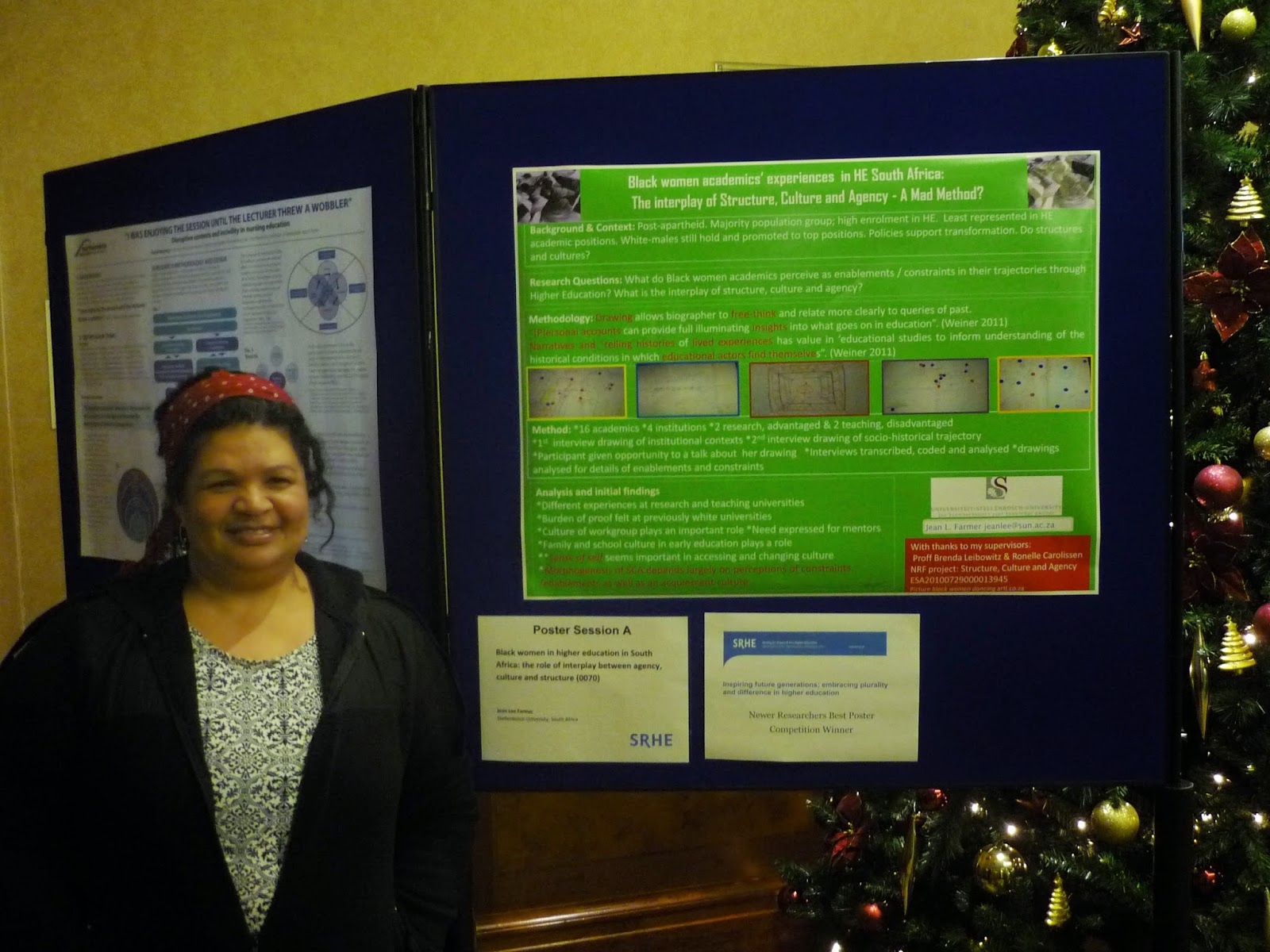By now several papers have emerged from the Structure, Culture and Agency project, including one which considers significant structural and cultural factors influencing teaching and learning and professional development across the eight higher education institutions in our paper in
Higher Education (Leibowitz, Bozalek, van Schalkwyk and Winberg, DOI
10.1007/s10734-014-9777-2) and several others listed in the pages on this blog-site. But I would like to concentrate on the Leibowitz et al study referred to here, in order to tease out something that has been worrying me about our own research using as guiding concept, the interplay of structure, culture and agency. In this article, the focus is on enabling and constraining factors as perceived in particular by academic developers, and this is discussed as they appear to play themselves out across eight sites. The result, in my view, does not lead to 'depth', and makes me wonder how we have benefitted from basing our research on a 'depth ontology'. It feels, by contrast, rather 'flat', and could have been achieved without reference to the work of Margaret Archer at all. It points to a risk associated with multi-site studies, of not looking at the interplay between the dimensions. The way forwards for the analysis of data in studies using the interplay of structure, culture and agency, it seems to me, is provided by three questions which Margaret Archer poses in the article she wrote with Dave Elder-Vass, in 2011. The three questions she poses in the extract below, can be usefully adapted, and can form the base for analysis of data for our own project, and others considering the interplay, and how teaching and learning contexts can be enhanced. I am quoting from the rather enjoyable article to read, by Archer and Elder-Vass, in full:
(a) My own concern as a working sociologist is to develop and refine an analytical
framework that is useful for conducting substantive analyses of why the cultural order
– or part of it – is, in Max Weber’s words, ‘so rather than otherwise’. That is why I call
the Morphogenetic approach an ‘explanatory framework’, in other words, a practical
toolkit (Parker, 2000: 69–85). This means attempting to provide guidelines to produce
particular explanations of cultural phenomena in different times and places, the most
important being:
How the prior context in which cultural interaction develops influences the form it
takes.
Which relations between agents respond most closely to these influences and which
tend to cross-cut or nullify them.
Most generally, under what conditions cultural interaction results in morphostasis
rather than morphogenesis.
One can just as easily apply this to the structural order as well, or to both the cultural and structural, at the same time. In a future article, to come out shortly in Critical Studies in Teaching and Learning (CRISTAL), I pay more attention to the human and agentic element. I believe that if we do wish to understand how teaching and learning can be enhanced, it is precisely the interplay between structure, culture and human interaction, that needs to be investigated. What interests me personally in all of this, is the human or individual component, and the extent to which this is indeed reflexive, or more unconscious or habitual or conditioned, as critics of the work of Margaret Archer argue.
O
Archer, M.S. & Elder-Vass, D., 2011. Cultural System or norm circles? An exchange. European Journal of Social Theory, 15(1), pp.93–115. Available at: http://est.sagepub.com/cgi/doi/10.1177/1368431011423592 [Accessed May 31, 2014].
Leibowitz, B., Bozalek, V., van Schalkwyk, S & Winberg, C. 2014. Institutional context matters: the professional development of academics as teachers in South African higher education. Higher Education. Available at: http://link.springer.com/10.1007/s10734-014-9777-2 [Accessed July 2, 2014].





















